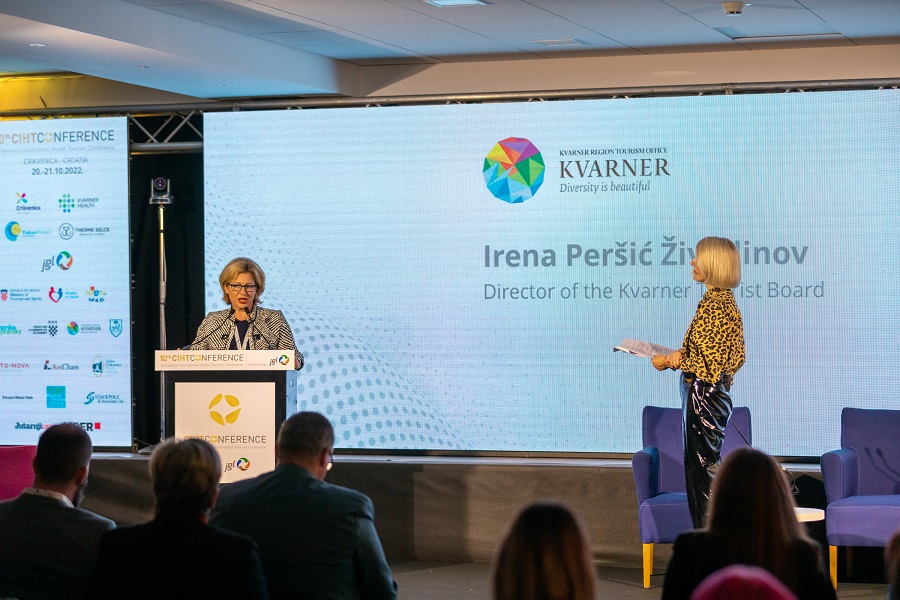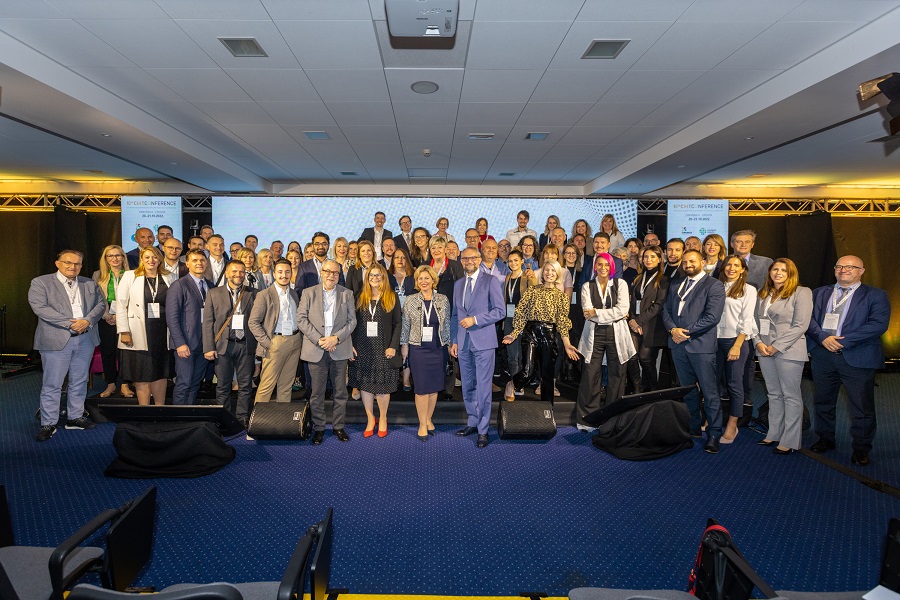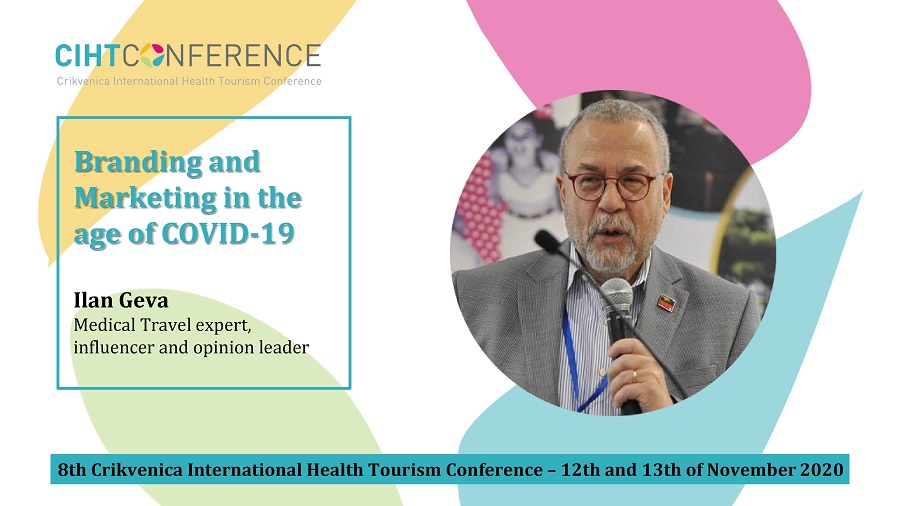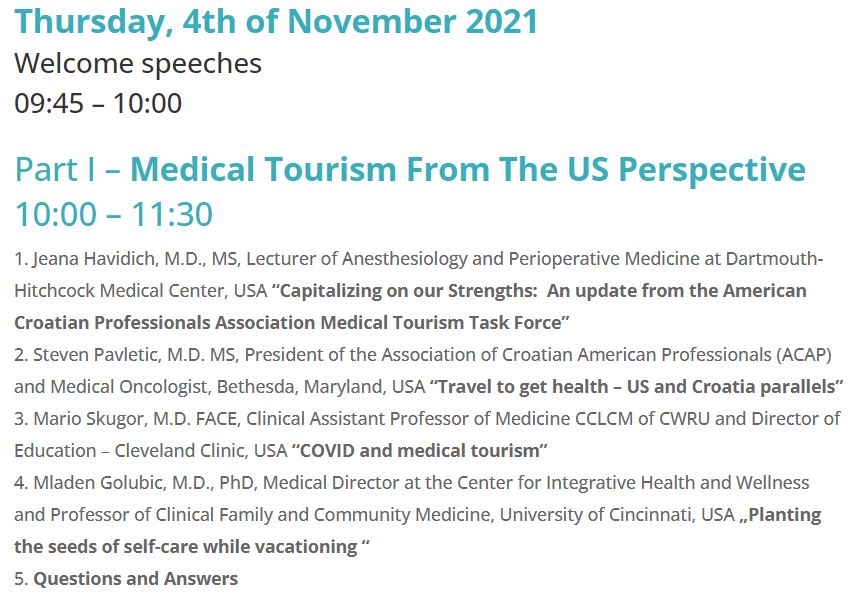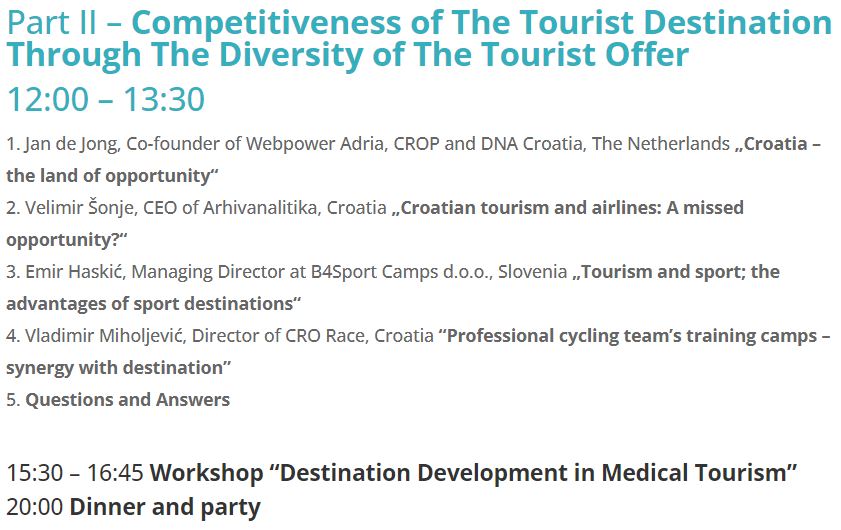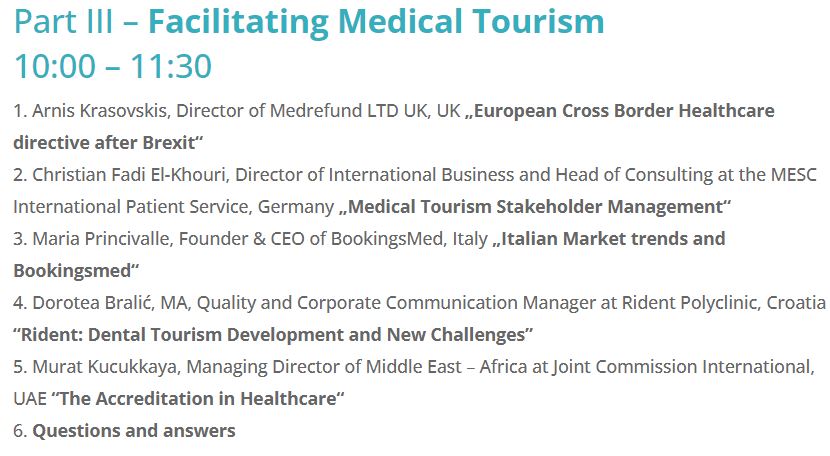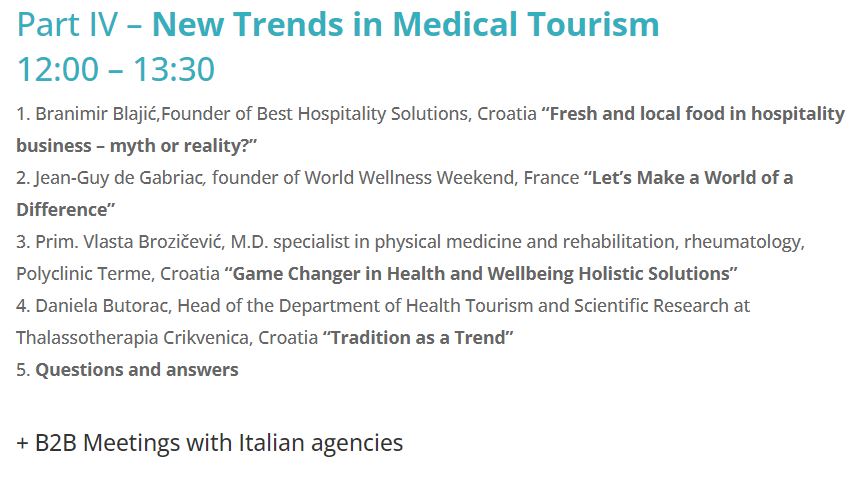Vladimir Mozetic, Kvarner Health Tourism Cluster President on Croatian Medical Tourism
November 7, 2022 - Croatian medical tourism is back after the pandemic. TCN catches up with Kvarner Health Tourism Cluster Vladimir Mozetic after the successful 10th edition of the Crikvenica
The 10th CIHT conference is behind you, congratulations. Give us an overview of this year's event. What were the highlights for you?
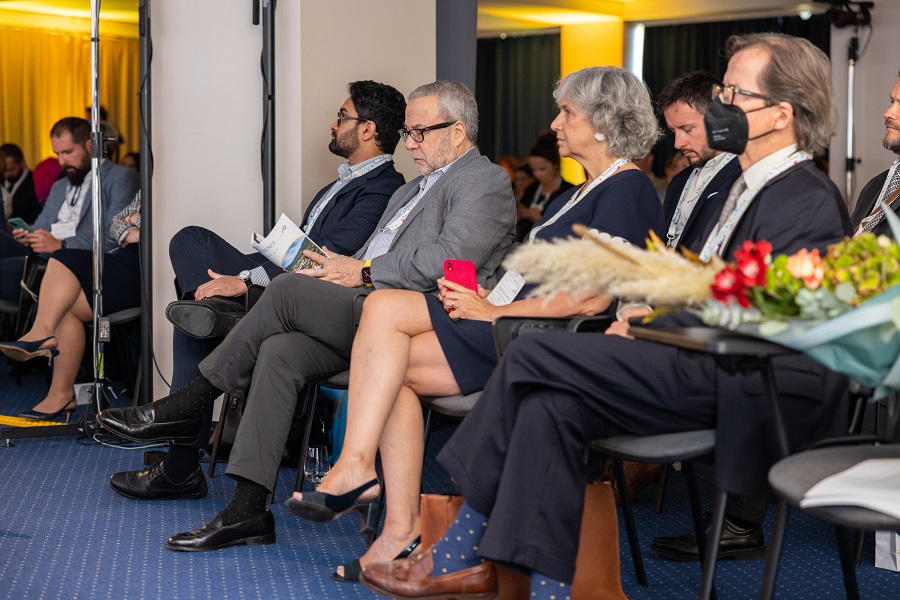
At this year's jubilee 10th CIHT Conference, over 120 participants were on the location, and over 300 participants attended online. During the Conference, over 20 eminent experts from the USA, UAE, Germany, Poland, and Croatia took part in presentations, workshops and panels. The titles of the panels and workshops speak for themselves:
New, Newer and the Newest in Health Tourism,
Health and Health Industry: Investment and Development,
Medical Tourism and Patient Expectations,
Natural Healing Factors and Health Tourism
Health tourism and sports rehabilitation
Workshop I – Careers in Health Travel
Workshop II – Accessible Tourism
Workshop III - Plan for the promotion of Croatian health tourism on the US market 2023-2025
During the Conference, we also presented 13 awards in recognition of personal/institutional contribution to the development of health tourism in Croatia. The winners were:
1. Special Hospital for Orthopaedic Surgery Akromion
2. University Eye Hospital Svjetlost
3. Glavić Clinic
4. Special Hospital for Medical Rehabilitation Krapinske Toplice
5. Special Hospital for Medical Rehabilitation Stubičke Toplice
6. St. Catherine Specialty Hospital
7. Special Hospital dr. Nemec
8. Rident Dental Clinics
9. Thalassotherapia Opatija
10. Therme Selce
11. Thalassotherapia Crikvenica
12. Ognjen Bagatin
13. Marcel Medak
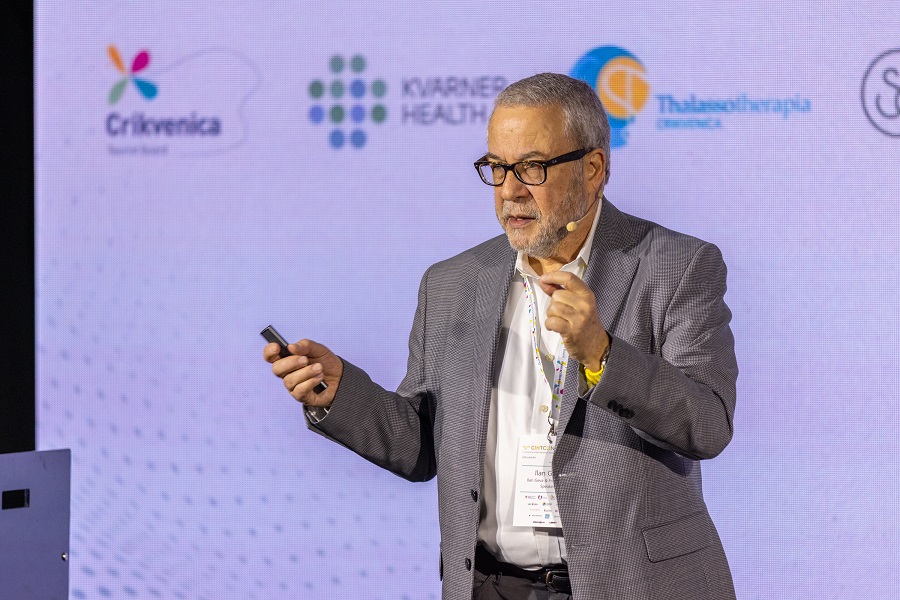
Ten years is quite an achievement, and both CIHT and Kvarner Health Tourism Cluster have made considerable progress since 2013, when you started this conference. Reflect on the last decade. Are you happy with progress so far?
I am certainly satisfied with the direction of the development of the Conference, which over the years has established itself as one of the most significant conferences in the region in the field of health tourism.
CIHT Conference was held for the first time in 2013 on the occasion of marking 125 years of organized health tourism on the Crikvenica Riviera, and in 2015 Kvarner Health Tourism Cluster joined as the organizer, alongside the Crikvenica Tourist Board.
Currently, CIHT Conference is the result of cooperation between the Crikvenica Tourist Board and the Kvarner Health Tourism Cluster as organizers, and the Special Hospital for Medical Rehabilitation Thalassotherapia Crikvenica and the Terme Selce Polyclinic as co-organizers. This year as well, the general sponsor was Jadran-galenski laboratorij d.d., the largest Croatian pharmaceutical company with global success and a member of the Cluster.
Also, for many years, both the Ministry of Tourism and Sports and the Ministry of Health have supported the CIHT Conference, as well as the Primorje-Gorski Kotar County, the Croatian National Tourist Board, the Kvarner Region Tourist Board, the Croatian Chamber of Economy, and the City of Crikvenica.
With the development in the past 10 years, experts from about 20 countries from 4 continents have participated as speakers at the Conference, bringing new knowledge and trends every year both in the organization and content of the service program in health tourism. The importance and possibilities of using new technologies in the provision and promotion of services, as well as the role of accreditation and certification, were also highlighted. A special area is dedicated to presenting knowledge about investment opportunities in health tourism, as well as the scientific segment of the CIHT program.
In addition to the exchange of knowledge, a very important area in the development of the Conference was the creation and maintenance of a "network", which also enables the continuation of business cooperation. This was also confirmed to us through a large number of active projects between the participants.
Of course, a non-negligible part of the Conference is getting to know the tourist / cultural / gastronomic / oenological qualities of our region.
Where was Croatian health tourism back then, and where is it today?
Given that in the past period, legislative changes were made at the national level and health tourism was included in national and regional strategic plans, the gradual development is obvious. Health tourism has been designated as one of the guidelines for the development of tourism, and at the same time it has become an integral organizational part within the field of health. Also, investments in personnel, space and equipment, as well as marketing and sales, have made it possible to talk about health tourism as one of the most significant economic branches in active development. At the same time, with the financing models offered through various EU programs, the necessary preconditions for further development are made possible.
The pandemic obviously severely disrupted the industry. How would you assess things now, and what permanent changes resulted from that disruption?
Certainly, the pandemic has slowed down the planned development, hitting some sectors more than others. At the same time, adaptation to the new situation led to new ideas, adaptation of the type of services to the new situation and greater use of technology in communication with users (digitalization, mobile applications, telemedicine). The way institutions and services are advertised has also partially changed. Auto destinations and shorter air destinations without major transfers are a more acceptable choice at the moment. As expected, the pandemic contributed to additional investments in the health industry, through research and products in the preventive, diagnostic and therapeutic segment.
What the members of our Cluster offer is a large number of POST-COVID rehabilitation programs, which are offered to both the domestic and foreign markets. At the same time, the offer is adjusted and developed in accordance with the trends in preventive and personalized medicine, physical and mental rehabilitation, the so-called "lifestyle" medicine, i.e. medicine of the style of life, and active and healthy aging programs. Although our focus is primarily on the surrounding countries (76 million people live within a 500 km or 5-hour drive, of which 15 million are over 60 years old), we also direct our advertising towards Scandinavia, Great Britain, but also the US, the UAE, India, and integration of various service models depending on the market. Research shows that for now about 50 million EU residents use health services outside their home country (about 10%), while about 250 million (53%) of those who wish to do so would, and this is an indication that there is no shortage of markets.
You have done a fantastic job branding Kvarner as a health tourism destination, and the Kvarner brand is bigger than Croatia within the industry. What is Kvarner doing differently?
I believe that the main reason is that in the Kvarner Region and in the entire county, and based on a tradition of over 180 years, we realized in a timely manner that mutual association of participants in health tourism (health, health industry, tourism, science and education) can bring greater visibility and better organization to everyone, a more economical approach and long-term investment. At the same time, each of the members additionally develops and uses its comparative advantages. For many years, most institutions have been continuously investing significant funds in staff, equipment and premises, as well as in the promotion of their own services on markets. Top quality service at an optimal price, and excellent transport connections by land and air are the main reasons for competitiveness. We provide an offer that includes the organization of the arrival, accommodation, health services, but also local cultural, gastronomic and "outdoor" activities. It is important to note that the health industry, of which health tourism is a significant part, is positioned as one of the strategic economic branches of development in our region. It also contributes to the quality of life of citizens, and creates products that can be offered to the market.
The Kvarner health tourism cluster (www.kvarnerhealth.hr) is an independent association (NGO) founded in November of 2014. It brings together members from the health sector (medical and dental), the health industry (pharmaceutical company), the tourism sector (tourist associations, agencies, hotel groups) and the scientific and teaching field (faculties of the University of Rijeka). Currently, the Cluster has 37 members, with over 9,500 employees, of which almost 5,500 are health personnel. The members are from both the private and the public sector.
Of course, we have high-quality cooperation with partners from all over Croatia, as well as state, regional and local institutions. We are also aware that additional connection is needed at the national level and we wish for this to happen as soon as possible, as this will achieve additional competitiveness and quality, both on the European and global markets.
Your priorities over the next 2-3 years to develop health tourism in Kvarner and Croatia?
The first step that we need to achieve at the national level is to turn from talking about potentials in health tourism to the realization of these common potentials. Legislation has been created that enables this, strategies have been written, and sources of financing are visible. If we jointly accept the health industry as a strategic economic branch, if we connect stakeholders in health care, the health industry, tourism, science, education and research, we can expect successful results. Destination certification projects, destination management, accreditation of service providers, the use of public-private partnerships, joint application to EU projects, and the use of comparative advantages and opportunities of individual sub-regions of Croatia will enable us to achieve the desired results.
For those perhaps not so familiar with the Kvarner region as a health tourism destination, paint a picture for us. What range of services and excellence are on offer, and what other facilities can people enjoy?
We often use the saying that "A week of stay in the Kvarner Region means health for the whole year". The name Kvarner comes from the Latin word "Quaternarus", which means a region that has mountains and a hilly region (Gorski kotar) in the north, the Istrian peninsula in the west, a long sea coast in the east, and islands in the south. This geographical area creates a uniquely healthy microclimate, and in addition to the natural healing factors we have, they were recognized as early as the first half of the 19th century, when the first spas in Kvarner began to open.
We still use this "positional rent", in addition to high-quality health and tourism staff, investment in equipment and space, as well as research and education, as well as high-quality land and air traffic connections. This is complemented by a high-quality and healthy gastronomic offer of local foods, in accordance with modern nutritional guidelines, activities in nature, at the sea, along the coast and in the hilly part of the region. The offer also includes wellness programs, as well as modern and traditional cultural facilities. Come and get to know Kvarner.
You can learn more about the Kvarner Health Tourism Cluster on the official website.
Read more about CIHT - CIHT 2022: Croatia's Premier Health Tourism Conference Turns 10 in Style.
Ilan Geva Interview, Medical Tourism Branding Expert at CIHT 2022
October 17, 2022 - As Croatia's premier health tourism conference, the Crikvenica International Health Tourism conference, prepares to open, TCN catches up with keynote speaker and branding expert, Ilan Geva.
As previously announced on TCN, CIHT 2022 will be holding its tenth Jubilee edition later this week, the premier health tourism conference in Croatia. As with all previous years, there will be a very international field of quality expert speakers, including one of the conference's most-loved keynote speakers, global branding expert, Ilan Geva. TCN caught up with Geva ahead of his latest visit to the Kvarner Riviera, to learn more about the industry in the wake of the pandemic, Croatia's position, and the conference itself, a conference which has strong local support (CIHT is organised by the Crikvenica Tourist Board and Kvarner Health Tourism Cluster, with the Kvarner Region Tourist Board a key sponsor).
1. The medical tourism industry has been shaken up by the pandemic just like every other aspect of life. As things begin to get back to a semblance of normal, what has changed in the industry since pre-pandemic 2019?
A lot has changed. Number one: the consumers. Many of them want to make sure that healthcare providers understand them before they even arrive. That creates a completely different customer profile, and their expectations go together with anxieties and lower trust. Two years of having conflicting messages, different safety rules in different locations etc. contributed to hesitance and wanting to know everything in advance. The second big factor: Transportation is not the same. Airlines are not back in full force. Yes, they may have gotten the airplanes back, but they suffer from a lack of personnel, which means less flights all over the world, which means less comfortable scheduling for patients. The workforce has shrunk in hospitals, clinics, hotels etc., and with it, the level of service deteriorated.
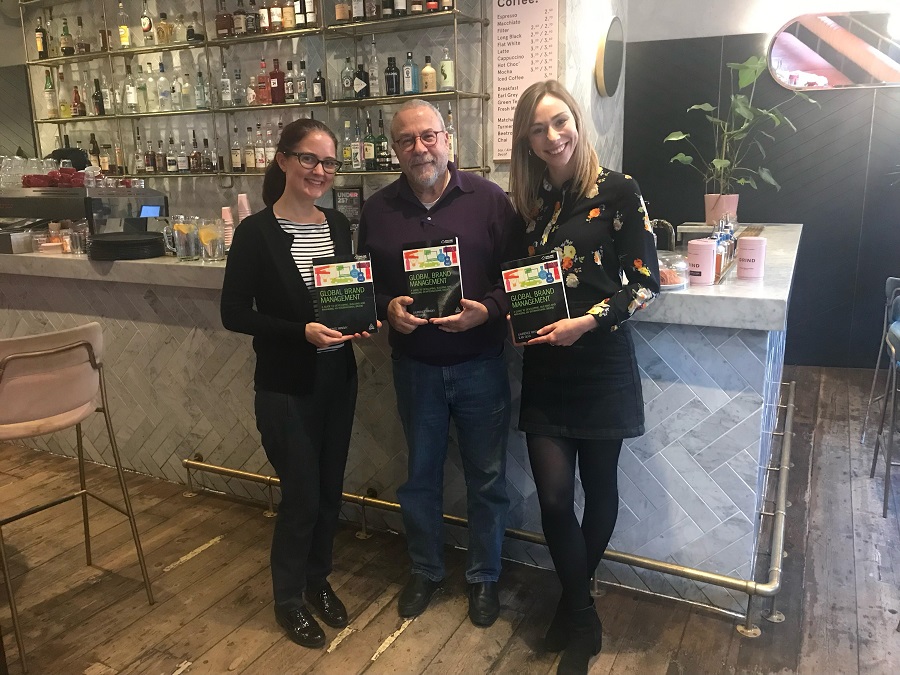
2. You have been a strong supporter of the Croatian medical tourism industry for many years now. What are its strengths and opportunities?
The opportunities are obvious, Croatia has great medical professionals in many specialties. I know personally a few that are really excellent in what they do. So, people are the strength. Opportunities were created because of a lack of activity during the pandemic, many patients need treatment, and they need it NOW! I’m not sure about the rest since the last time I’ve been there, so things may have changed. That is why I am back, and that is why Vmarsh Healthcare, of which I’m the Director of Strategy, is present at this conference to meet with the members of the Kvarner Cluster and see how we can help them. One thing I sense from afar, Croatians are extremely patriotic and proud (as they should be), but that alone doesn’t sell anything.
3. And its threats and weaknesses?
The threats are not just in Croatia. Europe is in trouble, as well as other destinations around the world. We live in a very precarious time, very unstable. The economy is in bad shape; prices are going up all over, obviously, the geopolitical scene is changing rapidly etc. A specific weakness is in the fact that health providers are still not willing to invest in their business, and I mean building brands and doing brilliant marketing. Croatia, like many other destinations, has medical professionals who think that if they are good doctors for the domestic population, they can be successful in attracting global clientele. Not so. Learn from the biggest and the most successful, Mayo Clinic invests in marketing and never stops building its’ brand. Does a small clinic owner in Split have a chance without doing the same? (of course they need to do it with a smaller budget, and smarter…)
4. You are back again in sunny Crikvenica for the 10th edition of the Crikvenica International Healthcare Travel conference, a conference you know well. Tell us about the importance and impact of CIHT, and what are you hoping to get out of it this year?
I don’t know if you noticed, but many European medical tourism conferences have vanished…there must be a reason. CIHT has been here for 10 years because they provide a great platform to the local medical travel, hospitality and wellness industries. And they do it year round, not just in an annual conference. The location is wonderful, and the program is always good, with great speakers. The conference is an important part of the medical travel industry in Kvarner because it is part of building the brand of the destination.
All other conferences are moving around from one location to another, for them its all about the conference, not the local community. CIHT is all about the local community and the Kvarner members of the cluster, very different! this year, I want to meet the providers, get a sense of how their business plans are moving forward, and see where I can help the cluster as a whole.
5. You are a global branding expert. Tell us about the branding of Croatia as a medical tourism destination. It almost seems that the organizers of CIHT, the Kvarner Health Tourism Cluster, has a bigger brand in the industry than Croatia itself.
Shall I be politically correct, or truthful? Yes, the Kvarner cluster is doing a better job than the rest of the country. Enough said.
6. Three things the Croatian medical tourism industry should be focusing on to develop.
1. Build a brand. 2. Build a brand, 3. Build a brand. Not a new slogan, not a new logo, not a new ad campaign with a wonderful new headline. No one cares about that! Do not fracture the Croatian medical tourism brand into hundreds of little clinic brands. Last time I heard, Croatia had 250 different local tourism brands, of regions, towns, resorts, villages etc. Don’t do it in Medical tourism, build a few major regional brands and support them, while they are collaborating and not competing with each other…sounds easy, right? Most important, don’t let the doctors drive the marketing, and build the brands from the inside. Want to know more? Come to my presentation :-)
7. Your presentation is entitled "Thoughts of market penetration strategies for healthcare and wellness operators." Can you give us a teaser?
See above…it is much more involved around internal brand building than the expensive external stuff.
8. And finally, as a regular visitor to Croatia, tell us what makes it special for you. Your favorite place and activity while you are here.
Since I am not looking for a wife or a girlfriend, it must be the air, the sea, the trees, the food, the clean environment, the people, the wonderful history and colors of the place. It is a fantastic combination that makes all my senses sing.
You can connect with Ilan Geva via LinkedIn.
To learn more about CIHT 2022, and to get your ticket, visit the official website.
All Croatian Medical Tourism Roads Lead to Crikvenica at CIHT 2022
October 17, 2022 - After disruption due to the pandemic, Croatia's leading medical tourism conference is back for its Jubilee 10th edition - the Crikvnenica International Health Tourism conference (CIHT 2022).
it is 5 years since Croatian entrepreneur and medical tourism trailblazer, Ognjen Bagatin, invited me to his office at Poliklinika Bagatin in Zagreb to introduce me to a world of Croatian excellence that I knew nothing about - its medical tourism industry. After a tour of Bagatin, Svjetlost Eye Clinic, and St Catherine's Speciality Hospital, I was left stunned. Here was a Croatian industry of global excellence that few people knew anything about. The first of many articles I have written about the Croatian medical tourism industry came out a few days later - Health Tourism is Coming Home: Why Zagreb is the Next Big Medical Tourism Destination.
But while Bagatin was performing miracles in Zagreb (it was an honour to be in Berlin to see him lift the Best International Cosmetic Surgery Clinic in the world at the International Medical Travel Journal awards in December 2019), it did not take me long to realise that the real capital of the Croatian medical tourism industry was on the coast in the Kvarner region, powered by an active and very organised Kvarner Health Tourism Cluster.
The flagship event of the cluster's calendar is the annual Crikvenica International Health Tourism conference, which will take place for its Jubiliee 10th edition, when CIHT 2022 kicks off later this week (full progamme below). I first attended back in 2018, when I was blown away by the quality of the very international field of speakers and participants. TCN interviews from that first event included keynote speakers Keith Pollard, Editor of International Medical Travel Journal, and Sherene Azli, the charismatic CEO of Malaysia Healthcare Travel Council, which was voted soonafter the best medical tourism destination in the world.
The lineup for CIHT 2022 is s fantastic as ever, and with a little more celebratory spice to mark the tenth anniversary. We will be following this year's conference here at TCN - next up an indepth interview with one of the keynote speakers and long-time friend of CIHT, global branding expert, Ilan Geva. You can find the schedule below, and there are still tickets available via the official CIHT 2022 website here.
Wednesday, 19th of October 2022
Workshop I
17:00 – 18:00
Thursday, 20th of October 2022
Opening ceremony and welcome speeches
09:30 – 10:00
Part I – New, Newer and the Newest in Health Tourism
10:00 – 11:30
- Irving Stackpole, President, Stackpole & Associates, Inc., USA „The Hybrid Future of Medical Tourism“
- Mario Škugor, M.D. FACE, Clinical Assistant Professor of Medicine CCLCM of CWRU and Director of Education, Cleveland Clinic, USA „Patient experience in Cleveland Clinic“
- Elizabeth Ziemba, JD, MPH, President & Founder, Medical Tourism Training, USA „“Accessible” Tourism: The Markets Hidden in Plain Sight. Why investing in accessible travel offers a ROI that also expands tourism, wellness, dental & medical tourism markets.“
- Maria Jukić, JD, Senior Director, Arts & Medicine Institute, Cleveland Clinic, USA „The Arts as Treatment and Differentiator in Healthcare“
11:30-12:00 – Break
12:00 – 13:00 Panel HEALTH TOURISM AND SPORTS REHABILITATION
- Prim. Vlasta Brozičević, M.D. specialist in physical medicine and rehabilitation, rheumatology, Department Head and member of the Board, Polyclinic Terme, Croatia
- Danijel Premuš, MD, Cardiology specialist, Thalassotherapia Opatija, Croatia
- Pero Kuterovac, Conditional and strength coach, Croatia
- Martina Linarić, PHD, Owner, Center for Nutrition and Holistic Approach to Health, NutriMarLIn, Croatia
13:00-13:15 – Break
Part II – Health and Health Industry: Investment and Development
13:15 – 15:00
- Joško Brkić, Global Brand Manager, JGL d.d., Croatia „Investing, Adapting, Thriving“
- Stjepan Orešković, PHD, Scientist and entrepreneur, M+ Group, Croatia „Entrepreneurship in healthcare“
- Igor Čičak, CEO & Managing Partner, Provectus Capital Partners, Croatia „PROVECTUS CAPITAL PARTNERS (PCP): Leading growth capital investment firm in South East Europe“
- Slavko Štefičar, Director, General for Sustainable Development and Competitiveness of Tourist Destinations at Ministry of Tourism and Sport, Croatia „Possibilities of financing the development of health tourism in the Republic of Croatia“
- Mario Ravić, Head of IoT & Digital Health, Ericsson NikolaTesla d.d., Croatia „Internet of things in health tourism journey – quantify it all“
15:00-17:00 – Lunch
17:00 – 18:00 Workshop II – Careers in Health Travel
by Elizabeth Ziemba and Irving Stackpole
20:00 Gala dinner with a presentation of awards in recognition of personal/institutional contribution to the development of health tourism in Croatia
Friday, 21st of October 2022
Part III – Medical Tourism and Patient Expectations
10:00 – 11:30
- Sandeep Sharma, Executive Director & Global Lead, Vmarsh Healthcare, UAE „The changed patient experience post pandemic – The global yet local insight“
- Ilan Geva, President, Ilan Geva & Friends Inc. and Director of Strategy and U.S. office head, Vmarsh Healthcare, USA „Thoughts of market penetration strategies for healthcare and wellness operators“
- Ognjen Bagatin, Owner and CEO, Polyclinic Sinteza, Croatia „The patient will see you now – what UX and UI can teach us about anticipating patients expectations“
- Marek Holowko, CEO & Co-Founder, Clinic Hunter, Poland, „How to increase conversion rate – best practices and tips“
- Miroslav Varga, Google certified trainer, Escape Ltd., Croatia „Patients are people. Do we know people?“
11:30 – 12:00 – Break
Part IV – Natural Healing Factors and Health Tourism
12:00 – 13:30
- Marijana Biondić, Director, Crikvenica Tourist Board, Croatia „From natural healing factors to one of the best health tourism destinations in Croatia“
- Assist. prof. Vladimir Mozetič, MD, PHD, MHA, President, Kvarner Health Tourism Cluster, Croatia „From clustering to the region of health and wellbeing“
- Ministry of AYUSH, India
- Simone Zagrodnik, Executive Director, European Historic Thermal Towns Association, Germany, „“Thermal Travels” – Spa Towns as Places of Health, Wellbeing and Culture“
13:30 – 15:00 – Lunch
15:00 – 19:00 Additional activities
Retiring in Croatia as a Non-EU National: Croatian Healthcare
February 11, 2022 - When retiring in Croatia, one of the key concerns when considering a move overseas is healthcare, and trying to navigate this space can be a daunting prospect especially for those looking to spend an extended amount of time in Croatia.
We are here to answer some of the questions on healthcare in Croatia by giving a brief overview of available options, covering factors such as costs, accessibility, and quality of healthcare.
What type of healthcare is available in Croatia?
In Croatia, as either a temporary or permanent resident, you will have access to both state and private healthcare sectors.
There are three main types of state healthcare coverage in Croatia:
- Obavezno zdravstveno osiguranje – Basic public health insurance (mandatory)
- Dopunsko zdravstveno osiguranje – Supplemental health insurance from either public or private providers
- Dodatno zdravstveno osiguranje – Premium private supplemental health insurance offered by banks and private insurers
Let’s start with the basic public health insurance “obavezno” since it is mandatory for all 3rd country residents of Croatia, unless you are on a Digital Nomad Visa, where private health insurance will suffice.
State healthcare - Overview
State healthcare in Croatia is regulated by Hrvatski zavod za zdravstveno osiguranje (HZZO), otherwise known as the Croatian Health Insurance Fund (CHIF).
The breadth and scope of this coverage is extensive. Once you’re in the system, you will have access to high-quality primary (e.g. general practitioners, gynecologists, dentists), secondary (e.g. specialists), and emergency care (e.g. hospitalization). Emergency care also extends to other member states within the European Union.
A wide range of medical prescriptions and certain healthcare aids (e.g. orthopedic, dental, diabetic) are also covered by basic public health insurance.
Before moving, check with your current doctors if your prescription is available locally, or if there is an equivalent that may be under a different brand. You can also look it up in this list if it is covered by HZZO.

Image: Pexels
State healthcare - Monthly premiums
As a 3rd country national, you can expect your monthly premiums to be around 618.75 HRK (€82) per person as of 2022. This calculation is based on the minimum salary average in Croatia as determined by the Croatian Bureau of Statistics (DZS).
However, if you are receiving a foreign pension, the onus is on you to declare it to the local authorities, especially if your pension is deposited to a Croatian bank account.
Of the amount you receive in foreign pension, 16.5% will go towards monthly HZZO premiums. This contribution is capped at a minimum amount of 618.75 HRK (€82) and a maximum of 1573.60 HRK (€208.70), based on the lowest (3,750 HRK/€497.35) and highest salary averages (9,537 HRK/€1284.85) in Croatia as of 2022.
When you first sign up for HZZO, you will also have to back pay the previous 12 months of monthly premiums even if you were not living in Croatia during that time. Assuming you have no foreign pension declared, this will amount to approximately 8,043.75 HRK (12 + 1 month) (€1066.81).
State healthcare - What will you pay for a visit?
Now that you have public healthcare, when you do see a primary healthcare professional, this care is covered under “obavezno”.
For secondary and emergency care, you pay 20% of services rendered which have minimum amounts of 25 - 100 HRK (€3.30-13.26) depending on whether you received outpatient or inpatient hospitalization care.
These payments can be reduced or removed altogether with the secondary “dopunsko” coverage which calls for another post in itself. For now, just be aware that “dopunsko” coverage costs an additional 45-75 HRK (€6-10) a month per person, and is offered by private insurers as well as HZZO.
Applying for HZZO
To apply for HZZO after your visa has been approved, you will need to download and fill in all necessary forms. As a 3rd country national, the form you’re looking for is a T-2. If you face some uncertainties on how to proceed, do visit your nearest HZZO office for guidance.
Another heads-up is that the English version of the HZZO website only gives 10% of all information available on the Croatian site so it’s better if you visit the Croatian site and do a translation.
Private healthcare - Overview
What if you find yourself needing healthcare while waiting for your visa to be processed? Or if you find yourself in a situation where you need to see a specialist on short notice for a second opinion?
Unless you require urgent medical care (in this case head to the nearest hospital), your first port of call would be to seek out a poliklinika (polyclinic) which is a private clinic.
Most polyclinics house a general practitioner who will accommodate walk-ins or offer appointments likely within the same day or week. They are also able to issue and extend prescriptions for pre-existing medical conditions.
Depending on your ailment, there are also specialized polyclinics that offer a range of services (e.g. dermatologists, gynecologists, urologists). Some policlinics also offer blood work and preventative health screening (e.g. food intolerance, cancer screening).
Croatia also offers top-notch private specialists and hospitals, which is reflected in their growing medical tourism sector. There are also private dental clinics that offer high-quality dental care at competitive rates when compared to other EU countries.
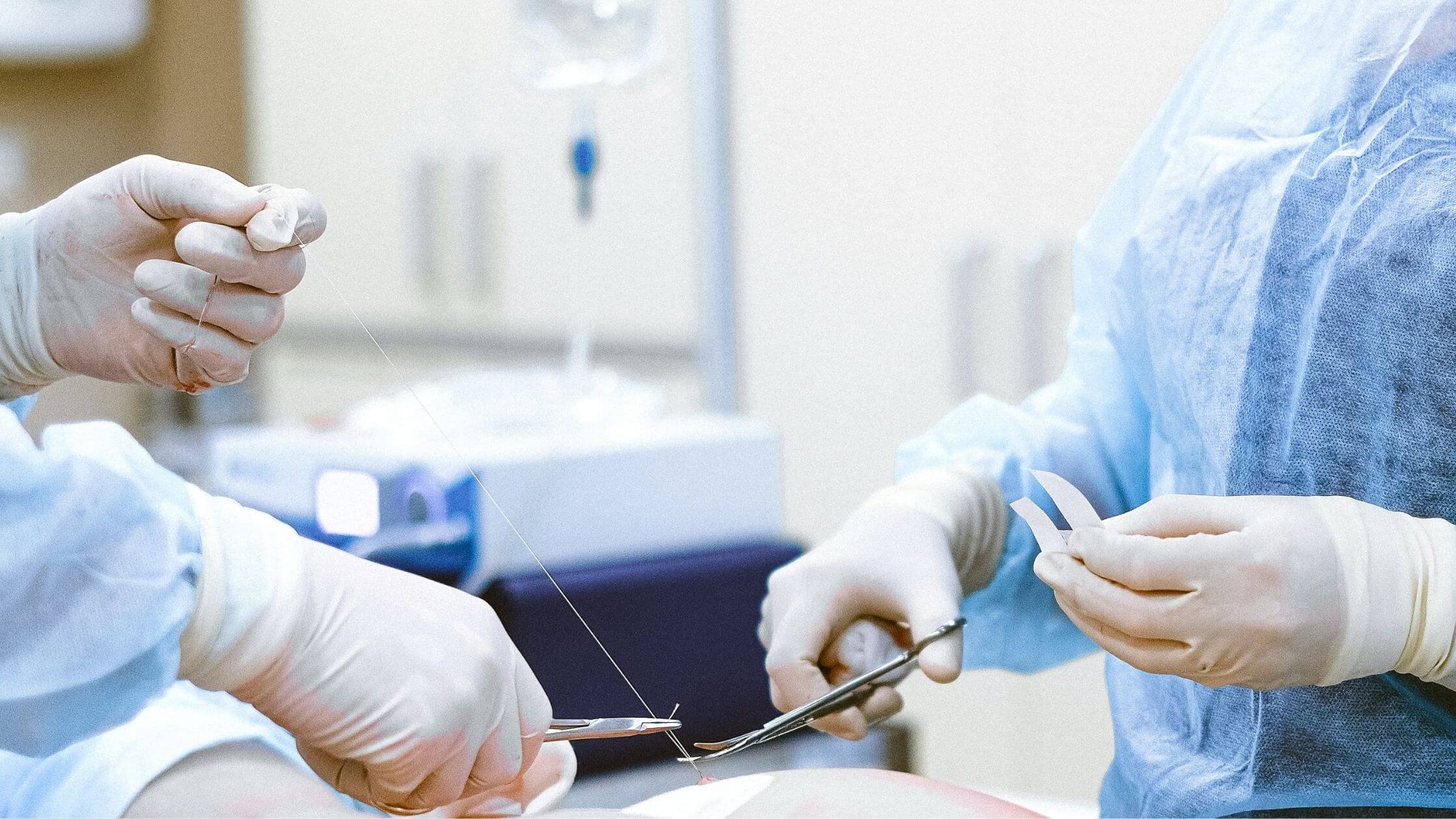
Image: Pexels
Private healthcare - What will you pay for a visit?
While costs of private healthcare vary, here is a non-exhaustive list of procedures assembled from various sources to give you an idea of what you can expect to pay out of pocket. Depending on your private healthcare policy (e.g. Cigna), you may be able to cover some of these costs but do double-check with your insurance provider.
Sample costs for general healthcare and screening:
- Basic consultation (general practitioner): 200 HRK (€27)
- Ultrasound abdominal: 250 HRK (€33)
- Mole screening: 200 HRK (€27)
- Food sensitivity tests (220 types): 2,700 HRK (€358)
- Thyroid panel tests: 450 HRK (€60)
- Breast/prostate blood panel: 2,335 HRK (€310)
- MRI-head: 2,090 HRK (€277)
- CT-Spine (3 segments): 1,030 HRK (€136)
Sample costs for surgery:
- Artificial disk replacement 113,000 HRK (€15,000)
- Knee replacement: 56,900 HRK (€7,545)
- Hip replacement: 56,730 HRK (€7,525)
- Torn achilles tendon - repair: 18,860 HRK (€2,501)
- Tennis elbow: 14,720 HRK (€1,952)
- Cataract and glaucoma (cataract surgery): 11,000 (€1,460)
The estimates above typically include pre-and post-operative consultations, but do not account for long-term rehabilitative care, or possible hotel stays if you are traveling to a specific city to undergo surgery.
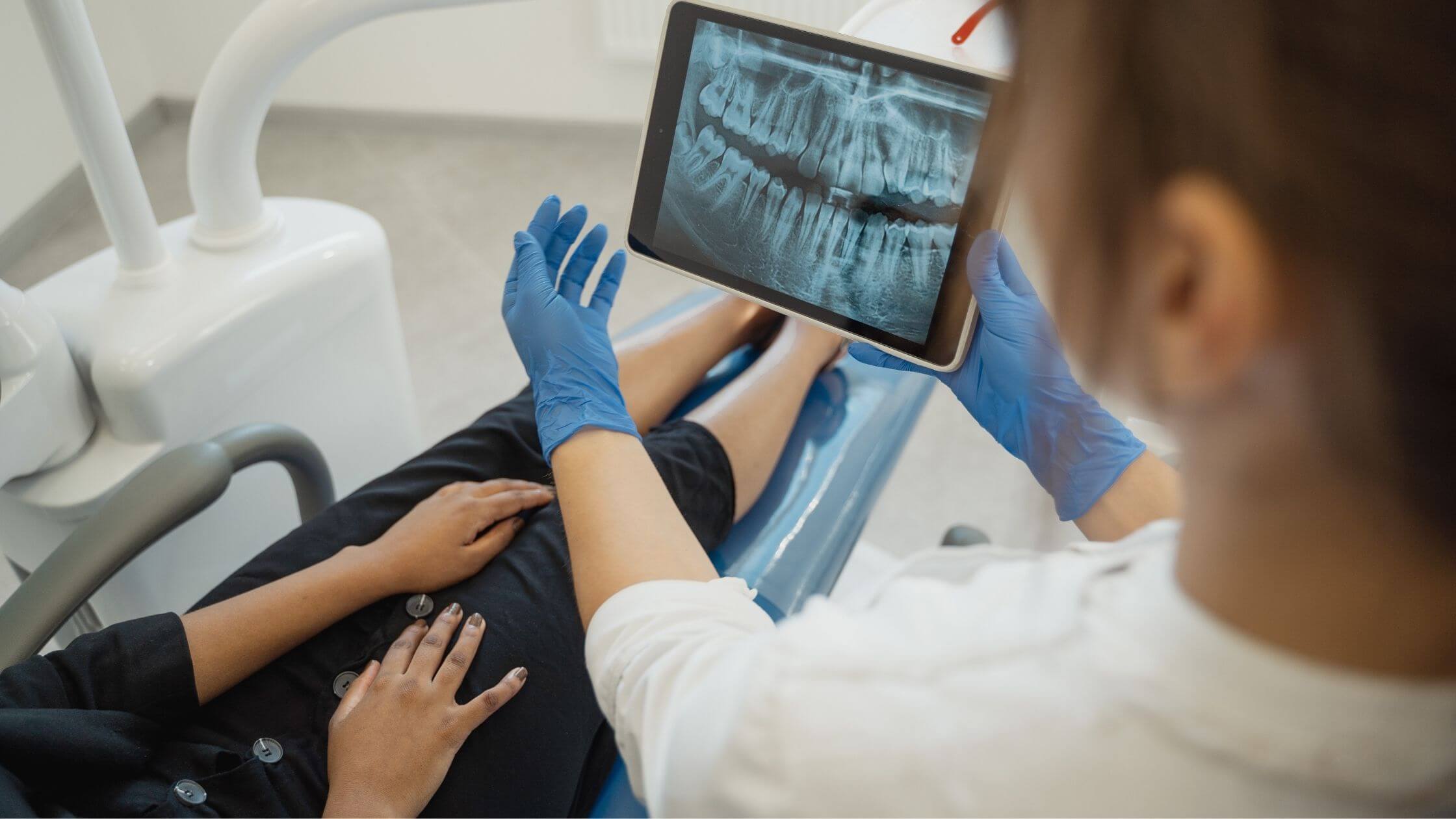
Image: Pexels
Sample costs for dentistry:
- Basic consultation: 200 HRK (€26)
- Descale and polish: 480 HRK (€64)
- Root canal treatment (per root): 500 HRK (€66)
- Zirconia-based crown: 2,300 HRK (€305)
Most private healthcare providers in Croatia expect cash payment upfront. In some cases, they will accept credit or debit cards, but call or drop them a message to confirm this. If you are a resident of Croatia, some clinics will allow you to pay in installments.
(€1 = 7.54 HRK)
For more news about Croatia, click here.
All Croatian Medical Tourism Roads Lead to Crikvenica with CIHT 2021
October 23, 2021 - The enormous potential of the Croatian medical tourism industry will once more be the focus next month, as global experts assemble for the annual Crikvenica International Health Tourism conference, CIHT 2021.
After reporting on the news about Croatia for a number of years now, certain things begin to follow a pattern.
I always report on the Za Krizen procession in Jelsa just before Easter, for example, and there is always a visit to Advent in Zagreb. And early November is reserved for one of my favourite - and impressive - conferences in Croatia, the Crikvenica International Health Tourism conference, or CIHT 2021.
It has a special place in my heart as it was the catalyst for probably the most unlikeliest stories of my writing career a couple of years ago, as my wife and I found ourselves on a plane to Malaysia where I picked up an award for best online international feature as the inaugural Medical Travel Media Awards in Kuala Lumpur.
Crikvenica and Malaysia may seem an unlikely combination, and I would have agreed with that had I not met one of the most energetic promoters of all things Croatia, Ognjen Bagatin.
Co-owner of the hugely successful Bagatin Clinic, Ognjen was passionate about the promotion of the medical tourism industry and realising its potential.
When I met him, I had no idea that Croatia even had a medical tourism industry. Within 10 minutes of meeting him, I was wondering why the whole world didn't know about the excellence on offer in Croatian clinics, and at very competitive prices.
It did not take me long to learn that the biggest brand in Croatian medical tourism globally - with the possible execption of Bagatin Clinic at St Catherine's Specialty Hospital - was not in fact Croatia itself, but something called the Kvarner Health Tourism Cluster. This was an alliance of interested stakeholders in the medical tourism industry who were doing fantastic work bringing patients for treatment in a number of specialist medical fields, from dentistry to physiotherapy.
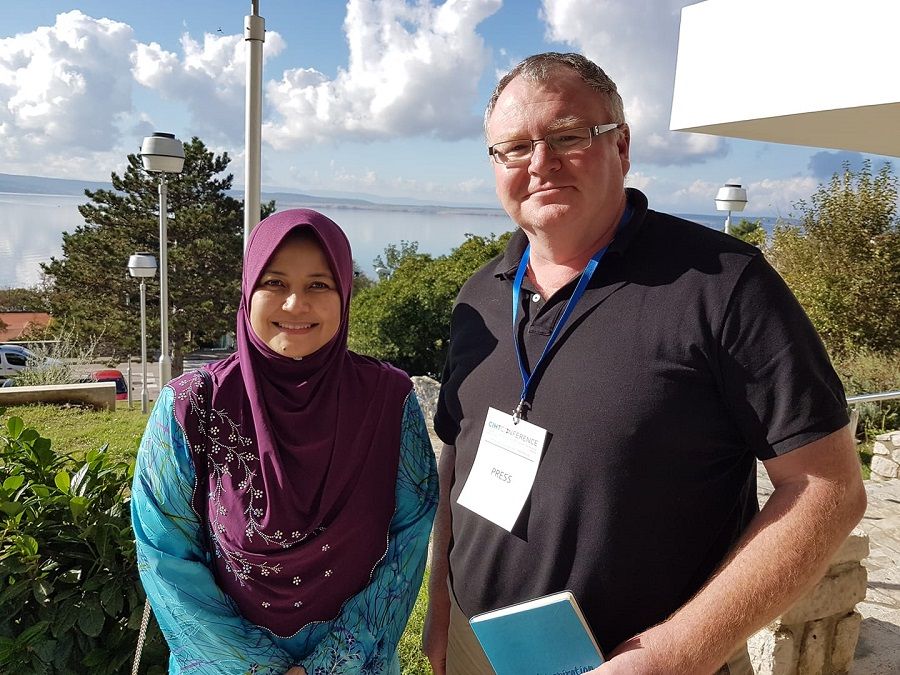
The highlight of the Kvarner Health Tourism Cluster's calendar was an annual conference called CIHT (Crikvenica International Health Tourism conference). Ognjen encouraged me to participate where he promised a great conference with some outstanding presentations and people to interview.
I was stunned by the high-quality of the international experts who had all made the journey to the Crikvenica Riviera for this health conference out of season in November. Keynote speakers I got to interview included Keith Pollard, Editor-in-Chief of the International Medical Travel Journal, Ilan Geva from the USA, a leading medical tourism (and other) branding specialist, and Sherene Azli, the charismatic CEO of the Malaysia Healthcare Travel Council.
Sherene's presentation was one of the finest I have seen at every conference, and little did I know it, but that interview started a chain of events which would have me on that plan to Kuala Lumpur less than a year later.
A year later, I was back in Crikvenica, this time also as a (terrible) conference speaker, sharing the podium with medical tourism experts who had flown in from leading establishmnents such as Mayo Clinic and Cleveland Clinic.
The Crikvenica was a hit, and a significant player in the global medical tourism calendar. And after the horrors of the 2020 pandemic, I shall once more be making my way down to the Crikvenica Riviera early next month, to take part in CIHT 2021.
After a brief (ok, not so brief) COVID interruption last year, Croatian medical tourism is back, and with some very useful additions to the story. The massive expansion of Ryanair (40 destinations for Zagreb alone by next summer) is opening up affordable Croatian medical tourism to more countries and destinations than ever before.
Another welcome trend is the rise in the remote work culture. Croatia is enjoying considerable success in its digital nomad story, and the excellent services of the medical tourism industry should be inserted into that initiative, to the benefit of all sides.
CIHT 2021 once more has a very strong lineup, and anyone interested in the medical tourism industry will find a night for them at this year's event. You can see the programme of the two-day event above, and you can get more details and register on the official website.
I can't promise you a trip to Malaysia if you do attend, but it is definitely one of the best organised, most social, and content-rich conferences on the Croatian conference scene.
From the UAE to Zagreb and Croatia for Medical Treatment
For a long time now, we've been trying to show and tell people that Croatia is far, far more than just the sun and the sea. Sure, the sparkling Adriatic and the warm climate is of course a big draw for many who take to Croatia's beautiful coastline every summer, but those who think that's all that this incredible little country has to offer are sadly mistaken.
I'm not just talking about the more encouraging numbers of tourists starting to uncover continental Croatia, Eastern Croatia and the country's various hidden gems, but about the Croatia which lies outside of the tourism bubble entirely, well... almost.
Tourism makes up a large part of Croatia's GDP and there's no denying that it is by far the country's strongest economic branch, this is not always a particularly positive thing and owing to it, Croatia has been plagued by enormous seasonality in terms of the economy and the labour market. Unemployment traditionally drops quite suddenly and by a significant amount during the run up to the bustling summer tourist season, especially on the coast, and then rises once again come the end of October thanks to the attempted lengthening of the tourist season, if not before.
Now a victim to a demographic crisis, mass emigration thanks to the country's membership of the EU's single market and a strange paradox in which there are no jobs but plenty of would-be employees but also many jobs and nobody who wants to do them, it's becoming more and more obvious that despite it being the country's strongest economic branch, relying almost entirely on tourist money might not be the best plan.
So, what else does Croatia have? It has some excellent doctors and nurses and many truly outstanding medical facilities. As Croatia tries to position itself as much more than ''just sea and sunshine'', medical tourism, or perhaps better to say ''health tourism'' has begun to take off, and with some promising results. Just recently, Donald Trump's first wife, Ivana, was in Zagreb for eye surgery at the well known Svjetlost clinic, where she underwent a procedure to restore her vision to normality and afford her a life without glasses and/or contact lenses. People like Ivana catch people's attention, and she's just one of many who have found their way to Croatia for a procedure of some sort.
As Poslovni Dnevnik/Marija Crnjak writes on the 29th of April, 2019, tourists from the United Arab Emirates (UAE) are increasingly travelling to Croatia and love luxury hotels and villas, and the Croatian National Tourist Board (HTZ) is set to present Croatia's rich tourist offer at the ATM Arabian Travel Market in Dubai on May the 1st, 2019.
In the scope of the above, HTZ Director Kristjan Staničić met with media and partners such as WEGO, Medical Ozone, AVIAREPS, Jordan's Tourism Organization, Meetin and Think Strawberries.
"Presenting Croatia on this market and cooperation with the UAE has multiple effects for Croatian tourism and for the economy, and the direct air link between Zagreb and Dubai with Emirates has led to an increased demand from business travellers, as well as tourists from East Asian countries such as South Korea, Japan, Taiwan, Singapore and then even Australia,'' he said.
There are also high expectations from the new Fly Dubai line, which will link Dubrovnik and Dubai from June the 2nd to October the 13th.
Citizens of the UAE realised 25.5 thousand overnight stays in Croatia last year, and most of them came to Zagreb, Dubrovnik and Split. They are typically demanding guests who love a touch of luxury and are travelling more and more.
In addition to HTZ, there are seven co-exhibitors, TZ Zagreb, TZ Dubrovnik-Neretva County, NP Plitvice Lakes, HUP, Amathus Travel Croatia, Abacus Tours and Jung Sky.
Zagreb will be presented in Dubai as a city break, as well as a health tourism destination.
Make sure to follow our dedicated travel and lifestyle pages for much more. If it's just the Croatian capital you're interested in, give Total Zagreb a follow or check out Zagreb in a Page. Find out more about Croatia's blossoming health tourism story, as well as the health system in general, here.
Click here for the original article by Marija Crnjak for Poslovni Dnevnik


